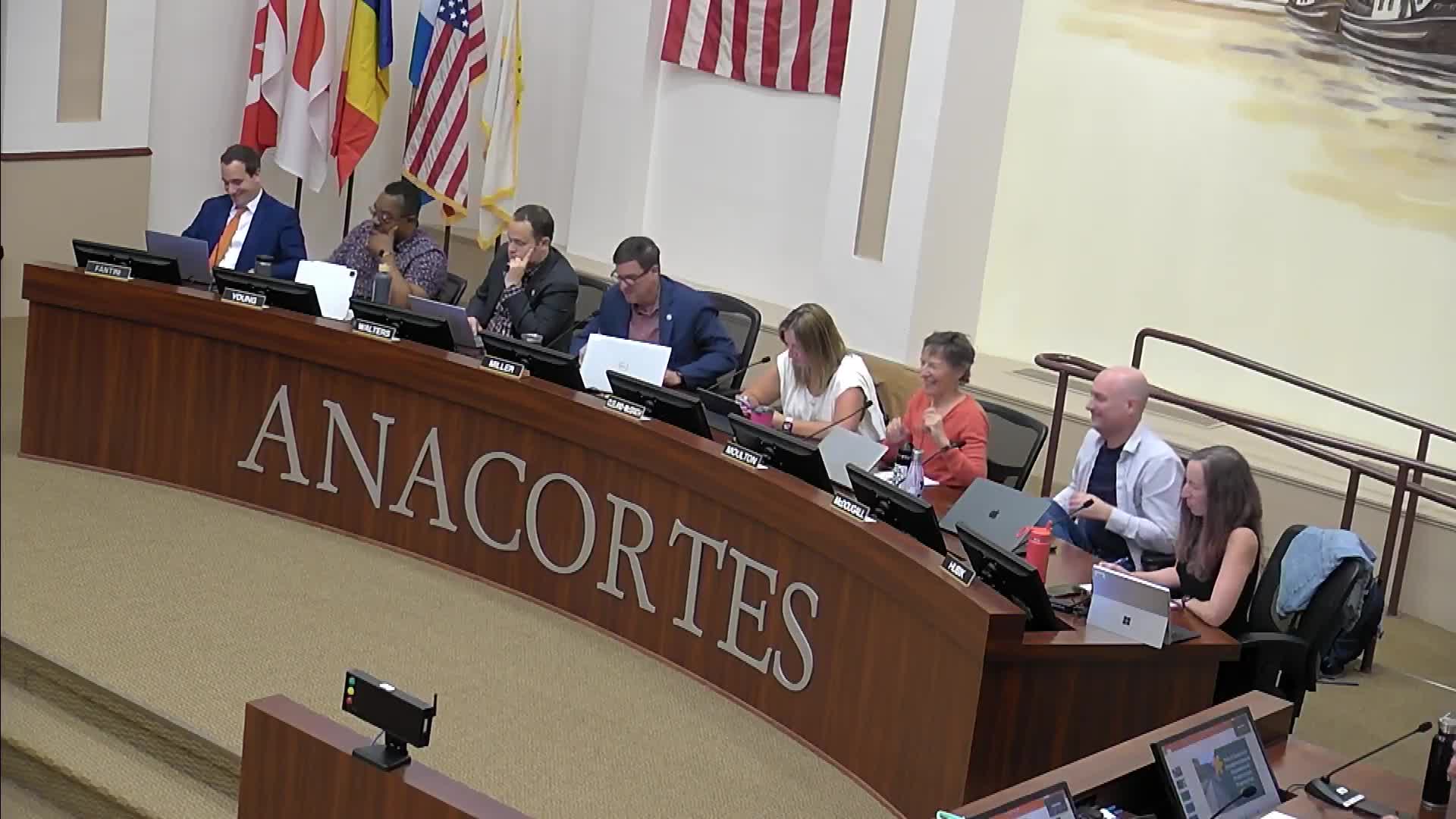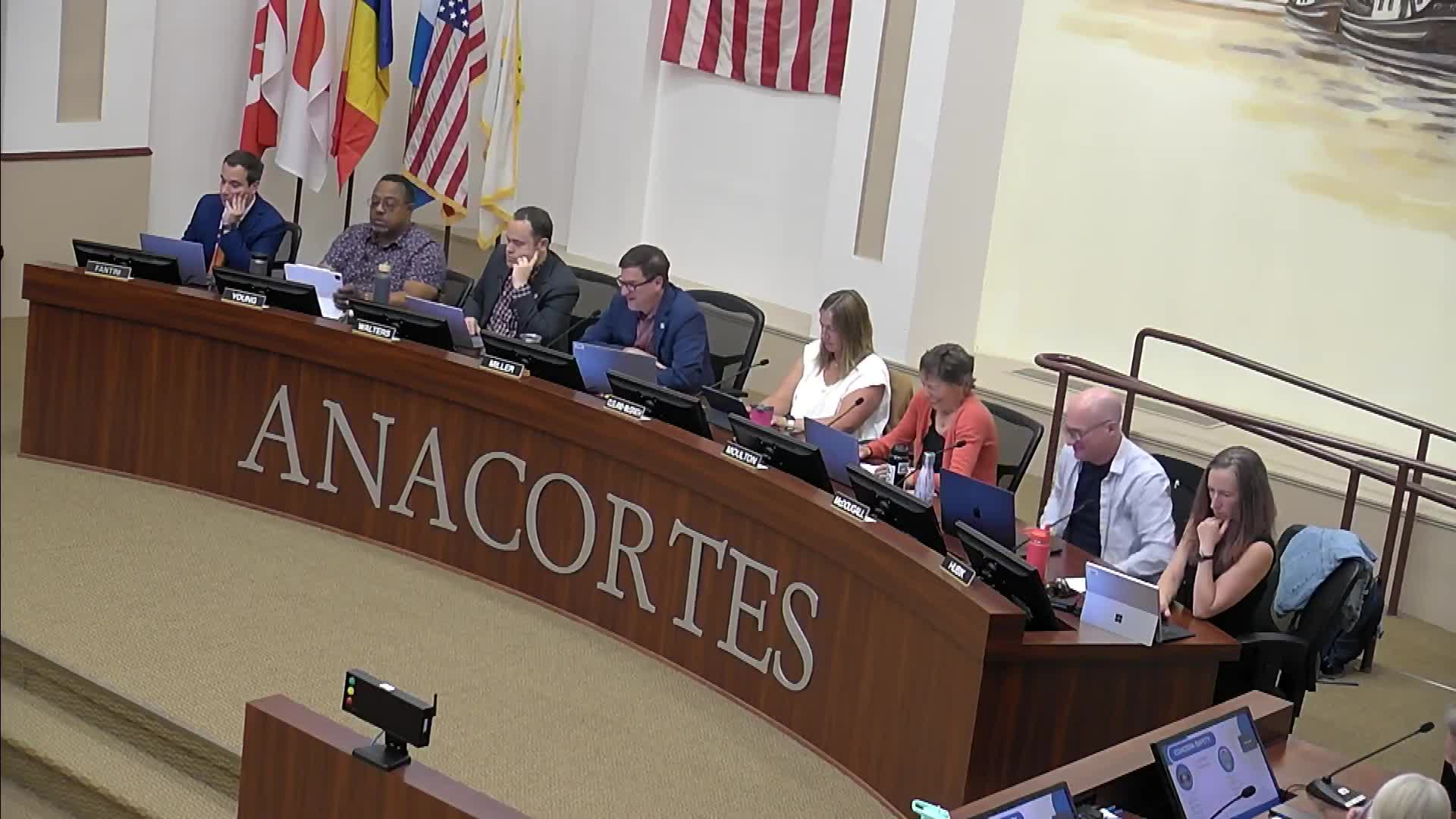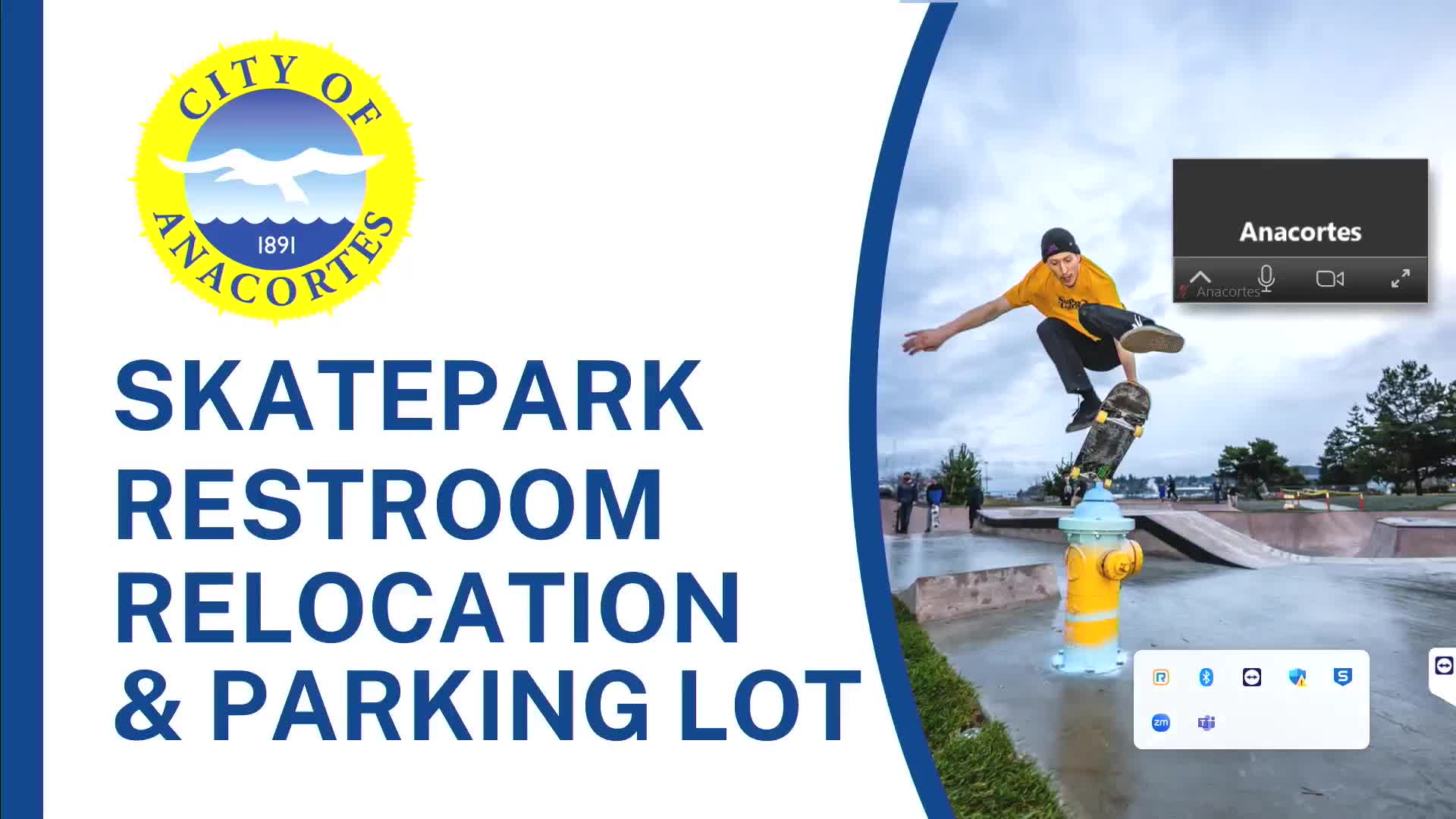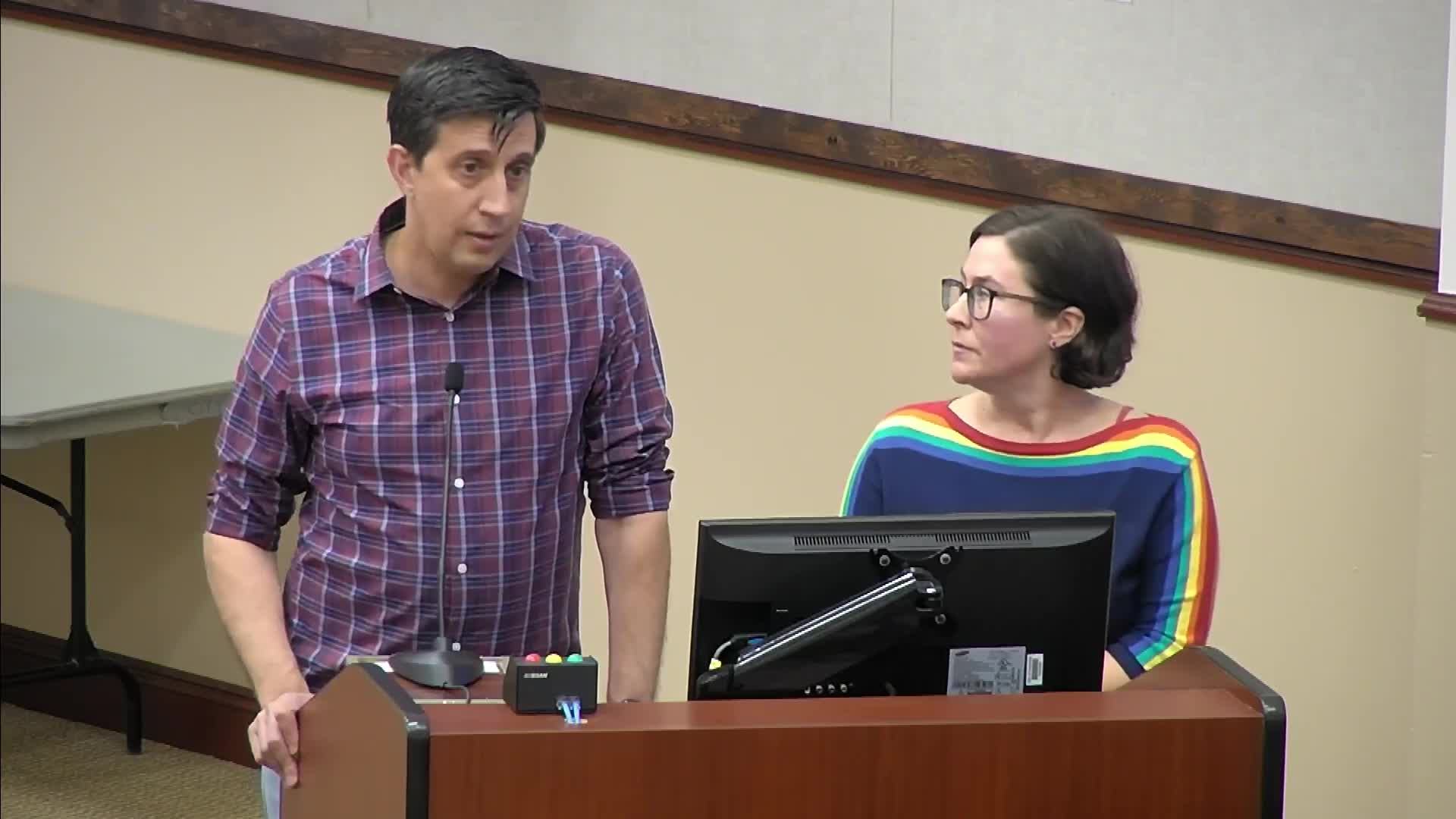Article not found
This article is no longer available. But don't worry—we've gathered other articles that discuss the same topic.

Council approves intergovernmental property agreement with Port of Anacortes to realign Market Street

Anacortes presents draft Transportation Master Plan; staff to open six‑year improvement program for public hearing

Council to move Benroost skate‑park restroom design to consent after debate on cost and ADA access

